PRESENTERS
Our deepest gratitude to the many speakers who contributed to making the 2017 Ontario Climate Symposium a success.
 Catherine Abreu is the Executive Director of the Climate Action Network Canada. Catherine is committed to work that confronts climate change head-on, wielding bold and creative strategies.As one of Canada’s foremost sustainable energy campaigners, Catherine advances policies that enhance Canada’s investments in energy efficiency and renewable energy while phasing out the use of fossil fuels. Catherine spent five years leading the energy and climate change mitigation programs at the Ecology Action Centre (EAC), Atlantic Canada’s largest and longest-running environmental advocacy organization. She is the former Coordinator of the Atlantic Canada Sustainable Energy Coalition (ACSEC).
Catherine Abreu is the Executive Director of the Climate Action Network Canada. Catherine is committed to work that confronts climate change head-on, wielding bold and creative strategies.As one of Canada’s foremost sustainable energy campaigners, Catherine advances policies that enhance Canada’s investments in energy efficiency and renewable energy while phasing out the use of fossil fuels. Catherine spent five years leading the energy and climate change mitigation programs at the Ecology Action Centre (EAC), Atlantic Canada’s largest and longest-running environmental advocacy organization. She is the former Coordinator of the Atlantic Canada Sustainable Energy Coalition (ACSEC).
Keynote Panel
 Colin Anderson is Chair of the Energy Council of Canada, which was established in 1923 as a founding member of the World Energy Council. Previously, he was Chief Executive Officer of the Ontario Power Authority (OPA), responsible for ensuring a reliable, sustainable, cost-effective supply of electricity for Ontario. He led the organization in its efforts to coordinate province-wide conservation initiatives, plan the electricity system for the long term and procure clean supply resources. Prior to joining the OPA in 2008, Mr. Andersen held a variety of senior financial and policy positions in the Ontario Public Service, including as Deputy Minister of Finance, of Revenue, of Policy, Cabinet Office and Acting Deputy Minister of Health and Long-Term Care; Secretary of Treasury Board; Chair of the Ontario Financing Authority; and Chair of the Ontario Electricity Financial Corporation.
Colin Anderson is Chair of the Energy Council of Canada, which was established in 1923 as a founding member of the World Energy Council. Previously, he was Chief Executive Officer of the Ontario Power Authority (OPA), responsible for ensuring a reliable, sustainable, cost-effective supply of electricity for Ontario. He led the organization in its efforts to coordinate province-wide conservation initiatives, plan the electricity system for the long term and procure clean supply resources. Prior to joining the OPA in 2008, Mr. Andersen held a variety of senior financial and policy positions in the Ontario Public Service, including as Deputy Minister of Finance, of Revenue, of Policy, Cabinet Office and Acting Deputy Minister of Health and Long-Term Care; Secretary of Treasury Board; Chair of the Ontario Financing Authority; and Chair of the Ontario Electricity Financial Corporation.
Session 3A: Ontario’s Long-Term Energy Policy
 Paul Baines is Outreach and Education coordinator for the Great Lakes Commons, a grassroots effort to establish the Great Lakes as a thriving, living commons — shared waters that we all take care of and protect in perpetuity. He founded the Great Lakes Commons Map in 2012 to crowdsource people’s worry and wisdom for water health through data, discussion and story. He comes to this water reconciliation work with a background in critical pedagogy, democratic media, and environmental and cultural studies. In the summer of 2016 he toured the Great Lakes for 5 months connecting people, issues, and perspectives.
Paul Baines is Outreach and Education coordinator for the Great Lakes Commons, a grassroots effort to establish the Great Lakes as a thriving, living commons — shared waters that we all take care of and protect in perpetuity. He founded the Great Lakes Commons Map in 2012 to crowdsource people’s worry and wisdom for water health through data, discussion and story. He comes to this water reconciliation work with a background in critical pedagogy, democratic media, and environmental and cultural studies. In the summer of 2016 he toured the Great Lakes for 5 months connecting people, issues, and perspectives.
Session 2B: Climate Justice and the Commons
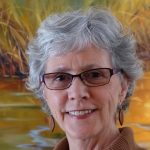 Suzanne Barrett is Coordinator of EcoHealth Ontario and Principal of Barrett Consulting. She is former chair of the Etobicoke and Mimico Watersheds Coalition and the Stewardship Network of Ontario, and a former member of the Ontario Biodiversity Council. Her work focuses on environmental planning, communications, facilitation and stakeholder engagement involving diverse sectors and disciplines. She directed the Waterfront Regeneration Trust’s program on the Lake Ontario Waterfront Greenway and Trail from 1992-2002, and was Director of the Environment Program for the Toronto 2008 Olympic Bid. In 2015 she worked with David Crombie and his Advisory Panel on the Coordinated Land Use Planning Review to prepare their report: Planning for Health, Prosperity and Growth in the Greater Golden Horseshoe.
Suzanne Barrett is Coordinator of EcoHealth Ontario and Principal of Barrett Consulting. She is former chair of the Etobicoke and Mimico Watersheds Coalition and the Stewardship Network of Ontario, and a former member of the Ontario Biodiversity Council. Her work focuses on environmental planning, communications, facilitation and stakeholder engagement involving diverse sectors and disciplines. She directed the Waterfront Regeneration Trust’s program on the Lake Ontario Waterfront Greenway and Trail from 1992-2002, and was Director of the Environment Program for the Toronto 2008 Olympic Bid. In 2015 she worked with David Crombie and his Advisory Panel on the Coordinated Land Use Planning Review to prepare their report: Planning for Health, Prosperity and Growth in the Greater Golden Horseshoe.
Session 2D/3D: Greenspace Protection and Enhancement: A Critical Adaptation Measure to Protect Public Health in the 22nd Century
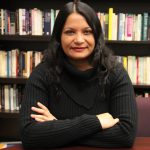 Bipasha Baruah is the Canada Research Chair in Global Women’s Issues and Professor of Women’s Studies and Feminist Research at Western University. Dr. Baruah conducts innovative interdisciplinary research on gender, development and globalization; women and work; and social, political and economic inequality. Her research on women and property ownership and women’s employment in renewable energy and resource efficiency has influenced policy within governments, financial institutions and non-governmental organizations. In addition to her academic career, Dr. Baruah has over 10 years of professional international development experience with organizations such as the United Nations Development Program, the Asian Development Bank and the World Resources Institute. The Royal Society of Canada (RSC) named Dr. Baruah to the 2015 Cohort of The College of New Scholars, Artists and Scientists.
Bipasha Baruah is the Canada Research Chair in Global Women’s Issues and Professor of Women’s Studies and Feminist Research at Western University. Dr. Baruah conducts innovative interdisciplinary research on gender, development and globalization; women and work; and social, political and economic inequality. Her research on women and property ownership and women’s employment in renewable energy and resource efficiency has influenced policy within governments, financial institutions and non-governmental organizations. In addition to her academic career, Dr. Baruah has over 10 years of professional international development experience with organizations such as the United Nations Development Program, the Asian Development Bank and the World Resources Institute. The Royal Society of Canada (RSC) named Dr. Baruah to the 2015 Cohort of The College of New Scholars, Artists and Scientists.
Session 3B: Gender Diversity in the Low-Carbon Economy
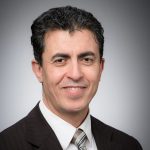 Lotfi Belkhir is a physicist, inventor, entrepreneur and currently the Endowed Chair in Eco-Entrepreneurship at the Walter G. Booth School of Engineering Practice at McMaster University. Dr. Belkhir’s current research and teaching have for core mission the advancement of a sustainable society through innovation, entrepreneurship, design and policy. Dr. Belkhir is also a proven socially responsible entrepreneur; he founded in 2001 Kirtas Technologies, the maker of the world’s first and fastest automatic book scanner, to enable the bridging of the digital divide through large scale digitization of libraries. Dr. Belkhir is a regularly featured speaker on the subjects of Entrepreneurship, Innovation, Sustainability and Corporate Social Responsibility.
Lotfi Belkhir is a physicist, inventor, entrepreneur and currently the Endowed Chair in Eco-Entrepreneurship at the Walter G. Booth School of Engineering Practice at McMaster University. Dr. Belkhir’s current research and teaching have for core mission the advancement of a sustainable society through innovation, entrepreneurship, design and policy. Dr. Belkhir is also a proven socially responsible entrepreneur; he founded in 2001 Kirtas Technologies, the maker of the world’s first and fastest automatic book scanner, to enable the bridging of the digital divide through large scale digitization of libraries. Dr. Belkhir is a regularly featured speaker on the subjects of Entrepreneurship, Innovation, Sustainability and Corporate Social Responsibility.
Session 3C: Going Beyond Compliance by Accelerating Transformational Change
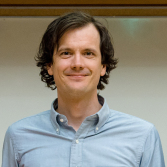 Craig Brown’s work is focused on climate change mitigation and adaptation in Canadian cities, with a focus on urban built environments. With degrees in sociology, environmental studies, and environmental applied science and management, he conducts interdisciplinary research that uses a variety of quantitative and qualitative methods and his interests include monitoring and evaluation methods for climate change adaptation and urban resilience, management and governance of flood risk, and climate change adaptation in high-rise condominiums. Craig is currently a postdoc at the University of Waterloo in the School of Environment, Enterprise and Development, and a part-time instructor in Ryerson University’s Department of Architectural Science where he lectures on sustainable urban design.
Craig Brown’s work is focused on climate change mitigation and adaptation in Canadian cities, with a focus on urban built environments. With degrees in sociology, environmental studies, and environmental applied science and management, he conducts interdisciplinary research that uses a variety of quantitative and qualitative methods and his interests include monitoring and evaluation methods for climate change adaptation and urban resilience, management and governance of flood risk, and climate change adaptation in high-rise condominiums. Craig is currently a postdoc at the University of Waterloo in the School of Environment, Enterprise and Development, and a part-time instructor in Ryerson University’s Department of Architectural Science where he lectures on sustainable urban design.
Session 1D: Future of the Water System
 Shannon Carto is the Climate Change Specialist for the Town of Caledon. In this capacity, she works closely with the Region of Peel, Peel area municipalities, conservation authorities, the local community and other stakeholders to enhance and implement the town’s environmental objectives and plans. She also works with her team in the Energy and Environment Division to improve the environmental performance of the municipality’s operations and practices. She is responsible for providing technical advice on incorporating climate change priorities into the town’s Official Plan, and for for ensuring the town’s compliance to and alignment with the Ontario Climate Change Action Plan, Ontario Climate Change Mitigation and Low Carbon Economy Act and Federal Climate Change priorities.
Shannon Carto is the Climate Change Specialist for the Town of Caledon. In this capacity, she works closely with the Region of Peel, Peel area municipalities, conservation authorities, the local community and other stakeholders to enhance and implement the town’s environmental objectives and plans. She also works with her team in the Energy and Environment Division to improve the environmental performance of the municipality’s operations and practices. She is responsible for providing technical advice on incorporating climate change priorities into the town’s Official Plan, and for for ensuring the town’s compliance to and alignment with the Ontario Climate Change Action Plan, Ontario Climate Change Mitigation and Low Carbon Economy Act and Federal Climate Change priorities.
Session 1A: Community Energy Planning
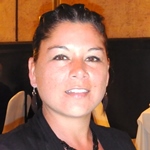 Kerry-Ann Charles is a Member of the Chippewas of Georgina Island First Nation and is the Environmental Coordinator/By-Law Enforcement Officer for her Community. She is involved in and manages several diverse Environmental programs including the Communities Climate Change Adaptation Program. It is a program that has been very successful and is currently being undertaken by other First Nations through funding from the Ontario Centre for Climate Impacts and Adaptation Resources and the Ministry of Environment and Climate Change with her support and guidance. Ms. Charles is also responsible for researching and the development of funding proposals which help sustain the Environment Department, initiating and building relationships with various environmental organizations, developing partnerships to co-ordinate and carry out various activities, as well as promoting education and community involvement in environmental health within her community.
Kerry-Ann Charles is a Member of the Chippewas of Georgina Island First Nation and is the Environmental Coordinator/By-Law Enforcement Officer for her Community. She is involved in and manages several diverse Environmental programs including the Communities Climate Change Adaptation Program. It is a program that has been very successful and is currently being undertaken by other First Nations through funding from the Ontario Centre for Climate Impacts and Adaptation Resources and the Ministry of Environment and Climate Change with her support and guidance. Ms. Charles is also responsible for researching and the development of funding proposals which help sustain the Environment Department, initiating and building relationships with various environmental organizations, developing partnerships to co-ordinate and carry out various activities, as well as promoting education and community involvement in environmental health within her community.
Session 1E: Indigenous Perspectives on Ontario Climate Policy
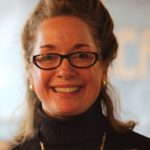 Lucy Cummings is the Executive Director of Faith & the Common Good, where she helps Canada’s diverse faith communities contribute to greener, healthier, more resilient neighborhoods. Previously, she taught global sustainability politics at the University of Hong Kong and chaired the UK affiliate of Seacology, a charity devoted to community-based island biodiversity protection. A proud new Canadian, she grew up in the US and spent much of her professional life in greater China. She earned her BA in economics (Univ. of Va), an MA in religious ethics (Yale), and a PhD in global politics (Johns Hopkins U).
Lucy Cummings is the Executive Director of Faith & the Common Good, where she helps Canada’s diverse faith communities contribute to greener, healthier, more resilient neighborhoods. Previously, she taught global sustainability politics at the University of Hong Kong and chaired the UK affiliate of Seacology, a charity devoted to community-based island biodiversity protection. A proud new Canadian, she grew up in the US and spent much of her professional life in greater China. She earned her BA in economics (Univ. of Va), an MA in religious ethics (Yale), and a PhD in global politics (Johns Hopkins U).
Session 2B: Climate Justice and the Commons
 Runa Das is a Postdoctoral Research Associate at the Robarts Centre for Canadian Studies, York University. Her background includes degrees in Psychology (undergraduate and Masters) and Environmental Applied Science and Management (PhD). Her research examines the assessment and practice of environmental and social sustainability. Her PhD thesis was focused on the characteristics that influence energy use.
Runa Das is a Postdoctoral Research Associate at the Robarts Centre for Canadian Studies, York University. Her background includes degrees in Psychology (undergraduate and Masters) and Environmental Applied Science and Management (PhD). Her research examines the assessment and practice of environmental and social sustainability. Her PhD thesis was focused on the characteristics that influence energy use.
Session 3B: Gender Diversity in the Low-Carbon Economy
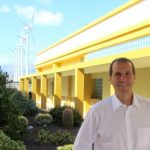 José Etcheverry is an Assistant Professor and Co-Chair of the Sustainable Energy Initiative at York University’s Faculty of Environmental. His work is focused on developing practical policy solutions to climate change through collaborative efforts. He is particularly interested in strategies to develop all renewable energy sources to their full potential, and in finding new ways to communicate effectively about solutions to climate change and energy problems. Prior to joining the faculty at York, he held positions at the David Suzuki Foundation and the climate change team of the Global Environment Facility in Washington DC.
José Etcheverry is an Assistant Professor and Co-Chair of the Sustainable Energy Initiative at York University’s Faculty of Environmental. His work is focused on developing practical policy solutions to climate change through collaborative efforts. He is particularly interested in strategies to develop all renewable energy sources to their full potential, and in finding new ways to communicate effectively about solutions to climate change and energy problems. Prior to joining the faculty at York, he held positions at the David Suzuki Foundation and the climate change team of the Global Environment Facility in Washington DC.
Session 2A: Future of Energy Systems
 Karen Farbridge is Urban Connector at Karen Farbridge & Associates Ltd., a consulting firm specializing in the accelerating the transition to low carbon communities. Previously, as mayor of the City of Guelph for 11 years, she advanced the principles of sustainability and community engagement in city building. She was an early advocate of the role of local government in community energy planning to reduce energy consumption and greenhouse gas emissions and strengthen local resilience, prosperity and well-being. She helped lead the integration of energy planning into the municipality’s growth, planning and economic development strategies. She recently co-authored “Top Asks for Climate Action: Ramping Up Low Carbon Communities,” and remains actively engaged with Quality Energy Systems of Tomorrow (QUEST).
Karen Farbridge is Urban Connector at Karen Farbridge & Associates Ltd., a consulting firm specializing in the accelerating the transition to low carbon communities. Previously, as mayor of the City of Guelph for 11 years, she advanced the principles of sustainability and community engagement in city building. She was an early advocate of the role of local government in community energy planning to reduce energy consumption and greenhouse gas emissions and strengthen local resilience, prosperity and well-being. She helped lead the integration of energy planning into the municipality’s growth, planning and economic development strategies. She recently co-authored “Top Asks for Climate Action: Ramping Up Low Carbon Communities,” and remains actively engaged with Quality Energy Systems of Tomorrow (QUEST).
Session 1A: Community Energy Planning
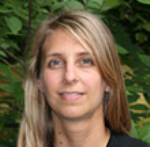 Jennifer Foster is an Assistant Professor in the Faculty of Environmental Studies at York University. She is interested in urban habitat creation and ecological restoration, particularly in terms of the interplay between social and biophysical dynamics in deindustrialized spaces. Jennifer current research focuses on urban landscape form and processes across cities such as Toronto, Paris and Milwaukee. She investigates how industrial legacies are interpreted and expressed ecologically, particularly in terms of how these spaces are imagined, constructed, inhabited and distributed.
Jennifer Foster is an Assistant Professor in the Faculty of Environmental Studies at York University. She is interested in urban habitat creation and ecological restoration, particularly in terms of the interplay between social and biophysical dynamics in deindustrialized spaces. Jennifer current research focuses on urban landscape form and processes across cities such as Toronto, Paris and Milwaukee. She investigates how industrial legacies are interpreted and expressed ecologically, particularly in terms of how these spaces are imagined, constructed, inhabited and distributed.
Session 1C: Regional Land Use Planning
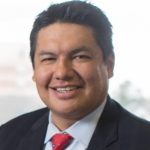 Derek Fox was elected one of three Deputy Grand Chiefs of Nishnawbe Aski Nation in August 2015. His portfolio responsibilities include education, economic development, broadband, environment and sports and recreation. Originally from Bearskin Lake First Nation in Treaty No. 9 territory, he enjoyed a successful career in major junior and semi-pro hockey before deciding to pursue a career in law. He was called to the Ontario bar with the Law Society of Upper Canada in 2014 and practiced in the area of Civil Litigation with a focus on Aboriginal and corporate and commercial law. He has a passion for his people, his territory, and for instilling a love of culture, sport, and education in Anishinaabe youth.
Derek Fox was elected one of three Deputy Grand Chiefs of Nishnawbe Aski Nation in August 2015. His portfolio responsibilities include education, economic development, broadband, environment and sports and recreation. Originally from Bearskin Lake First Nation in Treaty No. 9 territory, he enjoyed a successful career in major junior and semi-pro hockey before deciding to pursue a career in law. He was called to the Ontario bar with the Law Society of Upper Canada in 2014 and practiced in the area of Civil Litigation with a focus on Aboriginal and corporate and commercial law. He has a passion for his people, his territory, and for instilling a love of culture, sport, and education in Anishinaabe youth.
Session 1E: Indigenous Perspectives on Ontario Climate Policy
 James Gaede is a Postdoctoral Fellow at University of Waterloo. He wrote his thesis on the politics of “observing” the future for sustainable energy, looking in particular at the relationship between politics and controversy surrounding the International Energy Agency’s World Energy Outlook between 1998 and 2010. His primary academic and professional interests are in the connections between governance and science and technology/technological systems, as well as the politics of information in shaping strategic and/or public decision-making.
James Gaede is a Postdoctoral Fellow at University of Waterloo. He wrote his thesis on the politics of “observing” the future for sustainable energy, looking in particular at the relationship between politics and controversy surrounding the International Energy Agency’s World Energy Outlook between 1998 and 2010. His primary academic and professional interests are in the connections between governance and science and technology/technological systems, as well as the politics of information in shaping strategic and/or public decision-making.
Session 2A: Future of Energy Systems
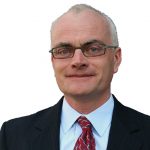 Jack Gibbons has been the Chair of the Ontario Clean Air Alliance since 1997, and has worked on energy and environmental issues in Ontario since 1979. His previous positions include: Economist, Energy Probe; Project Manager, Ontario Energy Board; Senior Economic Advisor, Canadian Institute for Environmental Law and Policy; and Commissioner, Toronto Hydro. Jack has studied economics at the University of Toronto, Queen’s University and the University of British Columbia.
Jack Gibbons has been the Chair of the Ontario Clean Air Alliance since 1997, and has worked on energy and environmental issues in Ontario since 1979. His previous positions include: Economist, Energy Probe; Project Manager, Ontario Energy Board; Senior Economic Advisor, Canadian Institute for Environmental Law and Policy; and Commissioner, Toronto Hydro. Jack has studied economics at the University of Toronto, Queen’s University and the University of British Columbia.
Session 3A: Ontario’s Long-Term Energy Policy
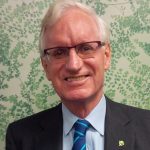 John Godfrey is Special Advisor for Climate Change to the Government of Ontario and Chair of Ontario’s Climate Action Group. His career in public service spans more than 30 years. He was first elected to the federal House of Commons as the member of parliament for Don Valley West in 1993 and was re-elected four times. In 2003-2004, he was the parliamentary secretary to the prime minister, and from 2004-2006 served in cabinet as minister of state for Infrastructure and Communities. Before entering politics, he served as vice-president of the Canadian Institute for Advanced Research, was editor of the Financial Post, and spent 14 years in academia. He has been involved in many community and public service organizations, including the Council for Canadian Unity, the National Film Board, and Pollution Probe.
John Godfrey is Special Advisor for Climate Change to the Government of Ontario and Chair of Ontario’s Climate Action Group. His career in public service spans more than 30 years. He was first elected to the federal House of Commons as the member of parliament for Don Valley West in 1993 and was re-elected four times. In 2003-2004, he was the parliamentary secretary to the prime minister, and from 2004-2006 served in cabinet as minister of state for Infrastructure and Communities. Before entering politics, he served as vice-president of the Canadian Institute for Advanced Research, was editor of the Financial Post, and spent 14 years in academia. He has been involved in many community and public service organizations, including the Council for Canadian Unity, the National Film Board, and Pollution Probe.
Plenary Panel
 Vanessa Gray is a 24-year-old Anishinaabe kwe from the Aamjiwnaang First Nation, located in Canada’s Chemical Valley. Vanessa works to promote awareness of the health issues resulting from her reserve’s toxic surroundings. She is an organizer with the group Aamjiwnaang and Sarnia Against Pipelines (ASAP).
Vanessa Gray is a 24-year-old Anishinaabe kwe from the Aamjiwnaang First Nation, located in Canada’s Chemical Valley. Vanessa works to promote awareness of the health issues resulting from her reserve’s toxic surroundings. She is an organizer with the group Aamjiwnaang and Sarnia Against Pipelines (ASAP).
Session 2B: Climate Justice and the Commons
 Barbora Grochalova is a staff lawyer with the Canadian Environmental Law Association, an Ontario Legal Aid specialty clinic focusing on environmental law. Barbora has worked on cases and law reform files related to administrative law, planning law, energy, and climate justice, among others. She has appeared before administrative tribunals and legislative committees. Barbora holds a JD from Dalhousie University and a BES from York University’s Faculty of Environmental Studies. She has spoken about Ontario’s climate policy and energy poverty, and presented at an international conference on the topic of food justice.
Barbora Grochalova is a staff lawyer with the Canadian Environmental Law Association, an Ontario Legal Aid specialty clinic focusing on environmental law. Barbora has worked on cases and law reform files related to administrative law, planning law, energy, and climate justice, among others. She has appeared before administrative tribunals and legislative committees. Barbora holds a JD from Dalhousie University and a BES from York University’s Faculty of Environmental Studies. She has spoken about Ontario’s climate policy and energy poverty, and presented at an international conference on the topic of food justice.
Session 2C: Addressing Challenges Faced by Low-Income Communities
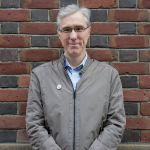 Franz Hartmann became the Executive Director of the Toronto Environmental Alliance (TEA) in the April of 2007. He has been advocating for a green Toronto since 1990 when he first volunteered at TEA. In 1998, after 8 years of studying and participating in urban environmental politics in Toronto, Franz received his PhD in Environmental Politics from York University. In 1998, he also became the Environmental Advisor to Councillor Jack Layton. Since then, Franz has been involved in advocating green energy, and solutions for smog, waste management and a green economy at the municipal and federal levels. Highlights include helping write the City of Toronto’s first ever Environmental Plan and helping develop a Kyoto Implementation Strategy for Canada. He has also taught courses at the University of Toronto’s Centre for the Environment.
Franz Hartmann became the Executive Director of the Toronto Environmental Alliance (TEA) in the April of 2007. He has been advocating for a green Toronto since 1990 when he first volunteered at TEA. In 1998, after 8 years of studying and participating in urban environmental politics in Toronto, Franz received his PhD in Environmental Politics from York University. In 1998, he also became the Environmental Advisor to Councillor Jack Layton. Since then, Franz has been involved in advocating green energy, and solutions for smog, waste management and a green economy at the municipal and federal levels. Highlights include helping write the City of Toronto’s first ever Environmental Plan and helping develop a Kyoto Implementation Strategy for Canada. He has also taught courses at the University of Toronto’s Centre for the Environment.
Session 1C: Regional Land Use Planning
 Karen Hofbauer is a Water Resources Engineer with 10 years of consulting experience. She is experienced in hydraulic modelling, specializing in dynamic modelling and characterization of riverine drainage systems and floodplain delineation. A recent addition to these studies is the consideration of impacts of climate change on flood flows. She also has experience in watershed hydrology, stormwater management of urban watersheds, and is proficient in the development of detailed dual drainage models. Her Master’s thesis work included evaluation of the impact of climate change on the occurrence of extreme precipitation events in the Upper Thames River Basin.
Karen Hofbauer is a Water Resources Engineer with 10 years of consulting experience. She is experienced in hydraulic modelling, specializing in dynamic modelling and characterization of riverine drainage systems and floodplain delineation. A recent addition to these studies is the consideration of impacts of climate change on flood flows. She also has experience in watershed hydrology, stormwater management of urban watersheds, and is proficient in the development of detailed dual drainage models. Her Master’s thesis work included evaluation of the impact of climate change on the occurrence of extreme precipitation events in the Upper Thames River Basin.
Session 1D: Future of the Water System
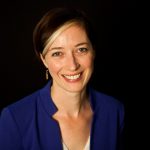 Christina Hoicka is Assistant Professor and PowerStream Chair with York University’s Faculty of Environmental Studies. Professor Hoicka investigates the adoption of clean energy technologies and behaviours in communities and their contribution to a low-carbon energy transition. She is currently leading the Social Science and Humanities Research Council (SSHRC) funded research project “Sustainable Energy Transitions: Linking Proenvironmental Behaviour to System Innovation,” which explores the links between energy user behaviours and sustainability transitions in Ontario’s energy sector. She is also conducting research on the adoption of the Energy Star rating in commercial buildings in the United States and of biofuels in Canada and India.
Christina Hoicka is Assistant Professor and PowerStream Chair with York University’s Faculty of Environmental Studies. Professor Hoicka investigates the adoption of clean energy technologies and behaviours in communities and their contribution to a low-carbon energy transition. She is currently leading the Social Science and Humanities Research Council (SSHRC) funded research project “Sustainable Energy Transitions: Linking Proenvironmental Behaviour to System Innovation,” which explores the links between energy user behaviours and sustainability transitions in Ontario’s energy sector. She is also conducting research on the adoption of the Energy Star rating in commercial buildings in the United States and of biofuels in Canada and India.
Session 3B: Gender Diversity in the Low-Carbon Economy
 Stefan Hostetter is a community builder, environmentalist, and storyteller. Currently working as the Community Animator and Project Coordinator for the Agents of Change: Climate Solutions at the Centre for Social Innovation he has the great pleasure of meeting and learning from amazing, world changing organizations every day. He is also the co-host of the weekly radio program The Green Majority on CIUT 89.5, one of Canada’s longest running environmental news programs and co-produces a monthly storytelling event titled: The Stories We Don’t Tell.
Stefan Hostetter is a community builder, environmentalist, and storyteller. Currently working as the Community Animator and Project Coordinator for the Agents of Change: Climate Solutions at the Centre for Social Innovation he has the great pleasure of meeting and learning from amazing, world changing organizations every day. He is also the co-host of the weekly radio program The Green Majority on CIUT 89.5, one of Canada’s longest running environmental news programs and co-produces a monthly storytelling event titled: The Stories We Don’t Tell.
Session 3C: Going Beyond Compliance by Accelerating Transformational Change
 Abhilash Kantamneni (Abhi) is a PhD candidate in Geography at the University of Guelph. His research helps communities prescribe, implement and evaluate energy efficiency programs. Abhi holds a BS in Electrical Engineering (Anna University, India), a MS in Physics and a MS in Computer Science (Michigan Tech). His data-driven approach to advancing energy sustainability has earned him many awards, including being named a “40 Under 40 Energy Transition Leader” by the Midwest Energy News. Abhi co-chairs an applied research project in Northern Ontario assisting social-housing with energy sustainability priorities. He also serves on the board of a social housing provider in Guelph, as well as a MN-based non-profit that improves solar access to low-income families.
Abhilash Kantamneni (Abhi) is a PhD candidate in Geography at the University of Guelph. His research helps communities prescribe, implement and evaluate energy efficiency programs. Abhi holds a BS in Electrical Engineering (Anna University, India), a MS in Physics and a MS in Computer Science (Michigan Tech). His data-driven approach to advancing energy sustainability has earned him many awards, including being named a “40 Under 40 Energy Transition Leader” by the Midwest Energy News. Abhi co-chairs an applied research project in Northern Ontario assisting social-housing with energy sustainability priorities. He also serves on the board of a social housing provider in Guelph, as well as a MN-based non-profit that improves solar access to low-income families.
Session 2C: Addressing Challenges Faced by Low-Income Communities
 Rob Keen, RPF, is the CEO of Forests Ontario. He has 30-plus years of experience includes developing forest management plans, feasibility studies, forest audits, and providing forestry services to landowners. Rob is a former Director of Maple Leaves Forever and the Algonquin Forestry Authority.
Rob Keen, RPF, is the CEO of Forests Ontario. He has 30-plus years of experience includes developing forest management plans, feasibility studies, forest audits, and providing forestry services to landowners. Rob is a former Director of Maple Leaves Forever and the Algonquin Forestry Authority.
Session 2D/3D: Greenspace Protection and Enhancement: A Critical Adaptation Measure to Protect Public Health in the 22nd Century
 Usman T. Khan is an Assistant Professor in Civil Engineering at York University. His research interests lie in Water Resources Engineering, focusing on urban hydrology, including flood risk analysis, sustainable water resource management and infrastructure, and the impacts of climate change on these systems. He received his BSc and MSc from the University of Calgary and was awarded a PhD from the University of Victoria. He has won a number of national awards for his research and teaching, including several awards from NSERC and an Andy Farquharson Teaching Excellence Award. In addition, he has worked with municipal governments, providing his expertise to a number of stormwater, watershed management and urban hydrology projects.
Usman T. Khan is an Assistant Professor in Civil Engineering at York University. His research interests lie in Water Resources Engineering, focusing on urban hydrology, including flood risk analysis, sustainable water resource management and infrastructure, and the impacts of climate change on these systems. He received his BSc and MSc from the University of Calgary and was awarded a PhD from the University of Victoria. He has won a number of national awards for his research and teaching, including several awards from NSERC and an Andy Farquharson Teaching Excellence Award. In addition, he has worked with municipal governments, providing his expertise to a number of stormwater, watershed management and urban hydrology projects.
Session 2C: Addressing Challenges Faced by Low-Income Communities
 Sean Kheraj is an associate professor of Canadian environmental history at York University and the director of the Network in Canadian History and Environment (NiCHE). His current research examines the history of long-distance oil pipeline development in Canada since 1947.
Sean Kheraj is an associate professor of Canadian environmental history at York University and the director of the Network in Canadian History and Environment (NiCHE). His current research examines the history of long-distance oil pipeline development in Canada since 1947.
Session 1C: Regional Land Use Planning
 Lisa King is a Senior Environmental Policy Planner for the City of Toronto, City Planning Division’s Strategic Initiatives Policy and Analysis section practicing in the areas of sustainable development, energy policy and climate change. Lisa leads new environmental policy agendas for the City Planning Division in efforts to ensure high performance buildings and communities in a City experiencing unprecedented growth. She is the staff lead for the Toronto Green Standard, a two-tier new construction standard and Toronto’s new zero emissions buildings framework. Her career spans 25 years of practise in the areas of ecosystems planning and restoration, sustainable design of buildings, communities and green infrastructure. She has a Masters degree from the Environment & Community program at Antioch University, Midwest, USA and her undergraduate degree is from Western University in Geography.
Lisa King is a Senior Environmental Policy Planner for the City of Toronto, City Planning Division’s Strategic Initiatives Policy and Analysis section practicing in the areas of sustainable development, energy policy and climate change. Lisa leads new environmental policy agendas for the City Planning Division in efforts to ensure high performance buildings and communities in a City experiencing unprecedented growth. She is the staff lead for the Toronto Green Standard, a two-tier new construction standard and Toronto’s new zero emissions buildings framework. Her career spans 25 years of practise in the areas of ecosystems planning and restoration, sustainable design of buildings, communities and green infrastructure. She has a Masters degree from the Environment & Community program at Antioch University, Midwest, USA and her undergraduate degree is from Western University in Geography.
Session 1A: Community Energy Planning
 Dustin Klaudt is a Master of Laws candidate at Osgoode Hall Law School. His research focuses on the interplay of climate science, economic policy, and various legal areas (aboriginal, administrative, constitutional, environmental, and human rights law) in the context of climate change. He is a Fellow with the Osgoode Environmental Justice and Sustainability Clinic, where he volunteers with Ecojustice researching the application of the Canadian Charter of Rights and Freedoms to redress climate change harms and has guest lectured to the Clinic’s seminar students on climate change litigation. He is a Non-Practising Member of the Law Society of British Columbia. He has experience practising estates, trusts, family, and commercial litigation in Vancouver and consulting on constitutional, environmental and human rights matters in South Africa with the Legal Resources Centre, South Africa’s largest and oldest human rights clinic and advocacy organization. Starting July 2017, he will clerk for Acting Deputy Chief Justice Bess Nkabinde-Mmono of the Constitutional Court of South Africa.
Dustin Klaudt is a Master of Laws candidate at Osgoode Hall Law School. His research focuses on the interplay of climate science, economic policy, and various legal areas (aboriginal, administrative, constitutional, environmental, and human rights law) in the context of climate change. He is a Fellow with the Osgoode Environmental Justice and Sustainability Clinic, where he volunteers with Ecojustice researching the application of the Canadian Charter of Rights and Freedoms to redress climate change harms and has guest lectured to the Clinic’s seminar students on climate change litigation. He is a Non-Practising Member of the Law Society of British Columbia. He has experience practising estates, trusts, family, and commercial litigation in Vancouver and consulting on constitutional, environmental and human rights matters in South Africa with the Legal Resources Centre, South Africa’s largest and oldest human rights clinic and advocacy organization. Starting July 2017, he will clerk for Acting Deputy Chief Justice Bess Nkabinde-Mmono of the Constitutional Court of South Africa.
Session 1B: Climate Law and Justice
 Kurt C. Kornelsen is the Network Manager of the NSERC Canadian FloodNet, a multi-institutional interdisciplinary research network that aims to enhance flood forecasting and management capacity in Canada. Dr. Kornelsen received his Ph.D. at McMaster University, where he studied the integration of remotely sensed information into hydrological models, optimization of hydrometric networks and groundwater-surface water interactions. He has published several peer-reviewed journal articles and government-commissioned reports and contributed to the development of the Environment and Climate Change Canada MESH modelling system.
Kurt C. Kornelsen is the Network Manager of the NSERC Canadian FloodNet, a multi-institutional interdisciplinary research network that aims to enhance flood forecasting and management capacity in Canada. Dr. Kornelsen received his Ph.D. at McMaster University, where he studied the integration of remotely sensed information into hydrological models, optimization of hydrometric networks and groundwater-surface water interactions. He has published several peer-reviewed journal articles and government-commissioned reports and contributed to the development of the Environment and Climate Change Canada MESH modelling system.
Session 1D: Future of the Water System
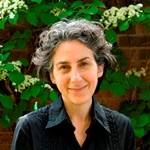 Julia Langer is CEO of The Atmospheric Fund, an endowment with a 25-year track-record of innovating, demonstrating and de-risking urban low-carbon solutions. She has also led campaigns focused on climate change, marine conservation and pollution prevention.
Julia Langer is CEO of The Atmospheric Fund, an endowment with a 25-year track-record of innovating, demonstrating and de-risking urban low-carbon solutions. She has also led campaigns focused on climate change, marine conservation and pollution prevention.
Keynote Panel
 Peter Love has decades of experience working in the environmental movement and in senior management of private companies with demonstrable results. He has been a senior executive in government, industry associations and businesses that have benefited from his extensive knowledge and experience in the energy sector. In addition to this, Peter is very passionate about supporting the development of new organizations and the next generation of environmental leaders in the public and private sectors. Currently, he is the President of the Energy Services Association of Canada and Adjunct Professor in York University’s Faculty of Environmental Studies. He provides services for various for-profit and non-profit boards, and was recently appointed to the new Energy Efficiency Alberta board.
Peter Love has decades of experience working in the environmental movement and in senior management of private companies with demonstrable results. He has been a senior executive in government, industry associations and businesses that have benefited from his extensive knowledge and experience in the energy sector. In addition to this, Peter is very passionate about supporting the development of new organizations and the next generation of environmental leaders in the public and private sectors. Currently, he is the President of the Energy Services Association of Canada and Adjunct Professor in York University’s Faculty of Environmental Studies. He provides services for various for-profit and non-profit boards, and was recently appointed to the new Energy Efficiency Alberta board.
Session 2A: Future of Energy Systems | Session 3A: Ontario’s Long-Term Energy Policy
 Jessie Ma is an IESO Distinguished Research Fellow at Ryerson University’s Centre for Urban Energy and conducts research in the integrated delivery of electricity, gas, and water conservation programs. She co-founded the ALERT project, which encourages energy conservation in Toronto’s low-income apartment buildings. Jessie spent over a dozen years at Hydro One and launched their integrated corporate responsibility program. She was selected as a DiverseCity Fellow by CivicAction in 2013-2014. She graduated from the Harvard Kennedy School’s Master in Public Administration program and the University of Toronto’s Engineering Science program, and is currently pursuing a PhD degree in Electrical Engineering at Ryerson University.
Jessie Ma is an IESO Distinguished Research Fellow at Ryerson University’s Centre for Urban Energy and conducts research in the integrated delivery of electricity, gas, and water conservation programs. She co-founded the ALERT project, which encourages energy conservation in Toronto’s low-income apartment buildings. Jessie spent over a dozen years at Hydro One and launched their integrated corporate responsibility program. She was selected as a DiverseCity Fellow by CivicAction in 2013-2014. She graduated from the Harvard Kennedy School’s Master in Public Administration program and the University of Toronto’s Engineering Science program, and is currently pursuing a PhD degree in Electrical Engineering at Ryerson University.
Session 3B: Gender Diversity in the Low-Carbon Economy
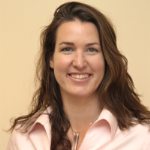 Dr. Julie MacArthur is a Senior Lecturer in Politics and International Relations and the Master of Public Policy program at the University of Auckland where she teaches environmental politics and public policy. She is the author of Empowering Electricity: Co-operatives, Sustainability and Power Sector Reform in Canada (UBC Press, 2016), as well as numerous articles and book chapters on sustainable community development, participatory environmental governance, and comparative energy policy. Dr. MacArthur has won SSHRC and RSNZ Marsden Fund grants for her research on the contribution of community energy initiatives to climate change mitigation and environmental justice. In 2016 she was a visiting researcher at the University College of Cork Cleaner Production Promotion Unit and at Simon Fraser University’s Centre for Sustainable Community Development. Julie is also a researcher with the University of Auckland Energy Centre and the co-ordinator of the New Zealand Environmental Politics and Policy Network.
Dr. Julie MacArthur is a Senior Lecturer in Politics and International Relations and the Master of Public Policy program at the University of Auckland where she teaches environmental politics and public policy. She is the author of Empowering Electricity: Co-operatives, Sustainability and Power Sector Reform in Canada (UBC Press, 2016), as well as numerous articles and book chapters on sustainable community development, participatory environmental governance, and comparative energy policy. Dr. MacArthur has won SSHRC and RSNZ Marsden Fund grants for her research on the contribution of community energy initiatives to climate change mitigation and environmental justice. In 2016 she was a visiting researcher at the University College of Cork Cleaner Production Promotion Unit and at Simon Fraser University’s Centre for Sustainable Community Development. Julie is also a researcher with the University of Auckland Energy Centre and the co-ordinator of the New Zealand Environmental Politics and Policy Network.
Session 3B: Gender Diversity in the Low-Carbon Economy
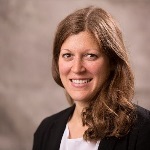 Sarah Marchionda is the Manager of Research and Strategic Initiatives at Quality Urban Energy Systems of Tomorrow (QUEST). In this role, Sarah is responsible for managing applied research projects focused on advancing Smart Energy Communities across Canada. She was the project manager for the Community Energy Planning: Getting to Implementation in Canada initiative, a national initiative focused on accelerating the implementation of Community Energy Plans. Sarah is a Candidate Member of the Canadian Institute of Planners and the Ontario Professional Planners Institute. Sarah is also a member of the Climate Change Committee at CIP.
Sarah Marchionda is the Manager of Research and Strategic Initiatives at Quality Urban Energy Systems of Tomorrow (QUEST). In this role, Sarah is responsible for managing applied research projects focused on advancing Smart Energy Communities across Canada. She was the project manager for the Community Energy Planning: Getting to Implementation in Canada initiative, a national initiative focused on accelerating the implementation of Community Energy Plans. Sarah is a Candidate Member of the Canadian Institute of Planners and the Ontario Professional Planners Institute. Sarah is also a member of the Climate Change Committee at CIP.
Session 1A: Community Energy Planning
 Madeleine McPherson is a PhD candidate at the University of Toronto, where she specializes in variable renewable energy integration, including resource characterization, optimization modeling, and energy systems analysis. Madeleine’s work has focused on the development of a new electricity system model: SILVER, for the Strategic Integration of Large-capacity Variable Energy Resources. Madeleine has applied SILVER to investigate a variety of research questions pertaining to large-scale variable renewable energy integration on electricity grids, including the impacts of grid flexibility, access to storage assets, alternative storage remuneration mechanisms, electric vehicle participation, and asset centralization.
Madeleine McPherson is a PhD candidate at the University of Toronto, where she specializes in variable renewable energy integration, including resource characterization, optimization modeling, and energy systems analysis. Madeleine’s work has focused on the development of a new electricity system model: SILVER, for the Strategic Integration of Large-capacity Variable Energy Resources. Madeleine has applied SILVER to investigate a variety of research questions pertaining to large-scale variable renewable energy integration on electricity grids, including the impacts of grid flexibility, access to storage assets, alternative storage remuneration mechanisms, electric vehicle participation, and asset centralization.
Session 3A: Ontario’s Long-Term Energy Policy
 Ian McVey is a Project Manager with the Ontario Climate Consortium, where he works to support interdisciplinary partnerships between researchers and policy makers that address the climate change challenge at the local and regional level. In this role of partnership management, Ian provides facilitation and coordination services to enable collaboration, as well as subject matter expertise on the integration of climate policy with land use and energy policy. Prior to the OCC, he worked in a research analyst roles with Export Development Canada, the Environmental Commissioner of Ontario, Loop Initiatives and the Pembina Institute.
Ian McVey is a Project Manager with the Ontario Climate Consortium, where he works to support interdisciplinary partnerships between researchers and policy makers that address the climate change challenge at the local and regional level. In this role of partnership management, Ian provides facilitation and coordination services to enable collaboration, as well as subject matter expertise on the integration of climate policy with land use and energy policy. Prior to the OCC, he worked in a research analyst roles with Export Development Canada, the Environmental Commissioner of Ontario, Loop Initiatives and the Pembina Institute.
Session 2C: Addressing Challenges Faced by Low-Income Communities
 David Miller is the current President and CEO of the World Wildlife Fund. He was Mayor of Toronto from 2003 to 2010 and Chair of the influential C40 Cities Climate Leadership Group from 2008 – 2010. Under his leadership, Toronto became widely admired internationally for its environmental leadership, economic strength and social integration. David is a leading advocate for the creation of sustainable urban economies, and a strong and forceful champion for the next generation of jobs through sustainability. In his former capacity as Counsel, International Business & Sustainability at Aird & Berlis LLP, he advised companies and international organizations on issues surrounding the creation of sustainable urban economies. David Miller is a Harvard trained economist and professionally a lawyer.
David Miller is the current President and CEO of the World Wildlife Fund. He was Mayor of Toronto from 2003 to 2010 and Chair of the influential C40 Cities Climate Leadership Group from 2008 – 2010. Under his leadership, Toronto became widely admired internationally for its environmental leadership, economic strength and social integration. David is a leading advocate for the creation of sustainable urban economies, and a strong and forceful champion for the next generation of jobs through sustainability. In his former capacity as Counsel, International Business & Sustainability at Aird & Berlis LLP, he advised companies and international organizations on issues surrounding the creation of sustainable urban economies. David Miller is a Harvard trained economist and professionally a lawyer.
Keynote Panel
 Karen Morrison‘s research focuses on the relationship between human health and well-being and environmental change. She is currently an Adjunct Professor at York University and is on the Steering Committees of the Ontario Biodiversity Council and EcoHealth Ontario. As the former Vice-President of the International Association for Ecology and Health, she has a unique perspective on the field of ecohealth. Dr. Morrison has conducted research and training in the field of ecohealth in Canada, South-East Asia and Latin America.
Karen Morrison‘s research focuses on the relationship between human health and well-being and environmental change. She is currently an Adjunct Professor at York University and is on the Steering Committees of the Ontario Biodiversity Council and EcoHealth Ontario. As the former Vice-President of the International Association for Ecology and Health, she has a unique perspective on the field of ecohealth. Dr. Morrison has conducted research and training in the field of ecohealth in Canada, South-East Asia and Latin America.
Session 2D/3D: Greenspace Protection and Enhancement: A Critical Adaptation Measure to Protect Public Health in the 22nd Century
 Mark Pajot is one of the first Municipal Climate Change Specialists, and the first Climate Change Principal Planners in Canada. He is currently Advisor within the Office of Climate Change and Energy Management at Region of Peel. He’s published numerous peer reviewed articles on climate change adaptation and has presented at over 100 conferences and events over the last three years. Mark also volunteers as expert advisor on climate change with the Canadian Standards Association (CSA); and is participating in the formation of a National Centre of Excellence (NCE) for Climate Change Adaptation.
Mark Pajot is one of the first Municipal Climate Change Specialists, and the first Climate Change Principal Planners in Canada. He is currently Advisor within the Office of Climate Change and Energy Management at Region of Peel. He’s published numerous peer reviewed articles on climate change adaptation and has presented at over 100 conferences and events over the last three years. Mark also volunteers as expert advisor on climate change with the Canadian Standards Association (CSA); and is participating in the formation of a National Centre of Excellence (NCE) for Climate Change Adaptation.
Session 3C: Going Beyond Compliance by Accelerating Transformational Change
 Patricia E. (Ellie) Perkins is a Professor in the Faculty of Environmental Studies, York University, Toronto where she teaches ecological economics, community economic development, and critical interdisciplinary research design. Her research focuses on feminist ecological economics, climate justice, and participatory governance. She has directed international research projects on community-based watershed organizing in Brazil and Canada and on climate justice and equity in watershed management with partners in Mozambique, South Africa and Kenya. She is the editor of Water and Climate Change in Africa: Challenges and Community Initiatives in Durban, Maputo and Nairobi and the author of many articles, book chapters and other publications. She is an editor of the journal Ecological Economics.
Patricia E. (Ellie) Perkins is a Professor in the Faculty of Environmental Studies, York University, Toronto where she teaches ecological economics, community economic development, and critical interdisciplinary research design. Her research focuses on feminist ecological economics, climate justice, and participatory governance. She has directed international research projects on community-based watershed organizing in Brazil and Canada and on climate justice and equity in watershed management with partners in Mozambique, South Africa and Kenya. She is the editor of Water and Climate Change in Africa: Challenges and Community Initiatives in Durban, Maputo and Nairobi and the author of many articles, book chapters and other publications. She is an editor of the journal Ecological Economics.
Session 2B: Climate Justice and the Commons
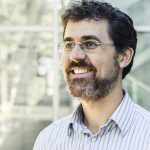 Pierre-Olivier Pineau is a professor at the Department of Decision Sciences of HEC Montréal and holds the Chair in Energy Sector Management since December 2013. He is an energy policy and management specialist, with a focus on electricity reforms. He has published many papers on the energy sector, most of them exploring the links between energy and aspects of sustainable development. He participates regularly in the public debate on energy and has authored many reports for the government and other public organizations. He is a member of the CAEE, CIRODD and the institute EDDEC. Before joining HEC Montreal, he was an associate professor at the School of Public Administration, University of Victoria.
Pierre-Olivier Pineau is a professor at the Department of Decision Sciences of HEC Montréal and holds the Chair in Energy Sector Management since December 2013. He is an energy policy and management specialist, with a focus on electricity reforms. He has published many papers on the energy sector, most of them exploring the links between energy and aspects of sustainable development. He participates regularly in the public debate on energy and has authored many reports for the government and other public organizations. He is a member of the CAEE, CIRODD and the institute EDDEC. Before joining HEC Montreal, he was an associate professor at the School of Public Administration, University of Victoria.
Plenary Panel
 Mike Puddister is the Deputy CAO and Director of Watershed Transformation at Credit Valley Conservation Authority. He has an undergraduate degree in Environmental Studies from the University of Waterloo and a graduate degree from the School of Rural Planning and Development, University of Guelph. Mike has been employed by Credit Valley Conservation since 1985. His current responsibilities within the Credit River watershed include terrestrial, aquatic, wetland habitat restoration, forest management, urban and rural community outreach, education and exploring and promoting the concepts of ecosystem services, natural capital and ecohealth. Mike is a founding member of the Ontario Network on Ecosystem Services. He is a member of the Research Management Committee for the Water Economics, Policy and Governance Network, hosted by Brock University. He is also Co-Chair of the Steering Committee for EcoHealth Ontario.
Mike Puddister is the Deputy CAO and Director of Watershed Transformation at Credit Valley Conservation Authority. He has an undergraduate degree in Environmental Studies from the University of Waterloo and a graduate degree from the School of Rural Planning and Development, University of Guelph. Mike has been employed by Credit Valley Conservation since 1985. His current responsibilities within the Credit River watershed include terrestrial, aquatic, wetland habitat restoration, forest management, urban and rural community outreach, education and exploring and promoting the concepts of ecosystem services, natural capital and ecohealth. Mike is a founding member of the Ontario Network on Ecosystem Services. He is a member of the Research Management Committee for the Water Economics, Policy and Governance Network, hosted by Brock University. He is also Co-Chair of the Steering Committee for EcoHealth Ontario.
Session 2D/3D: Greenspace Protection and Enhancement: A Critical Adaptation Measure to Protect Public Health in the 22nd Century
 Barry Rabe is the J. Ira and Nicki Harris Family Professor at the Gerald Ford School of Public Policy at the University of Michigan and a non-resident senior fellow at the Brookings Institution. He has published widely on the political feasibility of adopting and sustaining climate policies in the American federal system. His latest book, THE POLITICS OF CARBON PRICING, will be published by MIT Press in 2018.
Barry Rabe is the J. Ira and Nicki Harris Family Professor at the Gerald Ford School of Public Policy at the University of Michigan and a non-resident senior fellow at the Brookings Institution. He has published widely on the political feasibility of adopting and sustaining climate policies in the American federal system. His latest book, THE POLITICS OF CARBON PRICING, will be published by MIT Press in 2018.
Plenary Panel
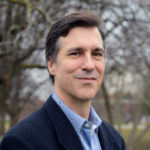 Ian Rowlands is Associate Vice-President, International and a Professor in the School of Environment, Resources and Sustainability at the University of Waterloo. His research interests are in the areas of energy management strategies and policy, and international education. Dr. Rowlands has served on a number of advisory boards, including those convened by the International Energy Agency, the Ontario Power Authority and the Independent Electricity System Operator. He is also a member of the Board of Directors of Sustainable Waterloo Region. He has previously worked for the United Nations Collaborating Centre on Energy and Environment in Denmark, the London School of Economics and Political Science and the United Kingdom Department for International Development.
Ian Rowlands is Associate Vice-President, International and a Professor in the School of Environment, Resources and Sustainability at the University of Waterloo. His research interests are in the areas of energy management strategies and policy, and international education. Dr. Rowlands has served on a number of advisory boards, including those convened by the International Energy Agency, the Ontario Power Authority and the Independent Electricity System Operator. He is also a member of the Board of Directors of Sustainable Waterloo Region. He has previously worked for the United Nations Collaborating Centre on Energy and Environment in Denmark, the London School of Economics and Political Science and the United Kingdom Department for International Development.
Session 2C: Addressing Challenges Faced by Low-Income Communities
 Randy Sa’d has worked as a Management Consultant since beginning his career, spending time with both multi-national and boutique firms. In 2007, Randy established an independent consultancy in Toronto and has since successfully completed projects for a range of corporate and non-profit clients. More recently, Randy developed a highly integrated relationship with Harbourfront Centre that involved him leading an innovative sustainability program on behalf of the organization. As an outcome of his work with Harbourfront Centre, Randy founded REFOCUS, a groundbreaking social enterprise that helps organizations develop and implement transformational sustainability programs. Based on the REFOCUS methodology, he is currently leading the development of a campus-wide sustainability program at Ryerson University.
Randy Sa’d has worked as a Management Consultant since beginning his career, spending time with both multi-national and boutique firms. In 2007, Randy established an independent consultancy in Toronto and has since successfully completed projects for a range of corporate and non-profit clients. More recently, Randy developed a highly integrated relationship with Harbourfront Centre that involved him leading an innovative sustainability program on behalf of the organization. As an outcome of his work with Harbourfront Centre, Randy founded REFOCUS, a groundbreaking social enterprise that helps organizations develop and implement transformational sustainability programs. Based on the REFOCUS methodology, he is currently leading the development of a campus-wide sustainability program at Ryerson University.
Session 3C: Going Beyond Compliance by Accelerating Transformational Change
 Neetika Sathe is the Director of Emerging Technologies at Alectra Energy Solutions. Her role in the organization is to identify, analyze and develop leading-edge innovative technologies and business opportunities. Prior to joining Alectra, Neetika was the Chief Marketing Manager at Nissan Canada responsible for the launch of the Nissan LEAF in Canada. She serves on the board of several industry associations such as SmartGrid Canada and Electric Mobility Canada, including Chairing the Board of NSERC Energy Storage Technology (NEST) Network. Neetika was recognized by Energy Storage North America with the 2016 Champion Award for her leadership and exceptional achievement in advancing energy storage technology.
Neetika Sathe is the Director of Emerging Technologies at Alectra Energy Solutions. Her role in the organization is to identify, analyze and develop leading-edge innovative technologies and business opportunities. Prior to joining Alectra, Neetika was the Chief Marketing Manager at Nissan Canada responsible for the launch of the Nissan LEAF in Canada. She serves on the board of several industry associations such as SmartGrid Canada and Electric Mobility Canada, including Chairing the Board of NSERC Energy Storage Technology (NEST) Network. Neetika was recognized by Energy Storage North America with the 2016 Champion Award for her leadership and exceptional achievement in advancing energy storage technology.
Session 1A: Community Energy Planning
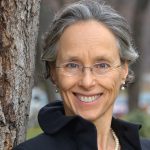 Dianne Saxe is the Environmental Commissioner of Ontario. Her five-year appointment will be focused on serving the Ontario Legislature, improving the effectiveness of the Environmental Bill of Rights, and catalyzing better environmental, energy and climate outcomes for and with the people of Ontario.Before her appointment, she was one of Canada’s most respected environmental lawyers, with 40 years of experience in environmental and energy law and litigation. Dianne has been recognized as Canada’s leading author on environmental law, through her books, columns and envirolaw.com blog, and was the recipient of Toronto’s first Environmental Lawyer of the Year honour. She has also received numerous other tributes, including the Ontario Bar Association Distinguished Service Award and the Osgoode Hall Lifetime Achievement Gold Key.
Dianne Saxe is the Environmental Commissioner of Ontario. Her five-year appointment will be focused on serving the Ontario Legislature, improving the effectiveness of the Environmental Bill of Rights, and catalyzing better environmental, energy and climate outcomes for and with the people of Ontario.Before her appointment, she was one of Canada’s most respected environmental lawyers, with 40 years of experience in environmental and energy law and litigation. Dianne has been recognized as Canada’s leading author on environmental law, through her books, columns and envirolaw.com blog, and was the recipient of Toronto’s first Environmental Lawyer of the Year honour. She has also received numerous other tributes, including the Ontario Bar Association Distinguished Service Award and the Osgoode Hall Lifetime Achievement Gold Key.
Plenary Panel
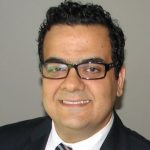 Shahab Shokrzadeh is a Postdoctoral Fellow with York University’s Sustainable Energy Initiative, carrying out research on energy storage technologies and policy. He is interested in the wide array of technical, policy and economic issues related to the transition towards a 100% renewable energy system. He holds a PhD in Engineering with the focus on battery repurposing of electric vehicles to synthesize a sustainable transportation approach through higher share of clean energy. He is also a registered professional engineer.
Shahab Shokrzadeh is a Postdoctoral Fellow with York University’s Sustainable Energy Initiative, carrying out research on energy storage technologies and policy. He is interested in the wide array of technical, policy and economic issues related to the transition towards a 100% renewable energy system. He holds a PhD in Engineering with the focus on battery repurposing of electric vehicles to synthesize a sustainable transportation approach through higher share of clean energy. He is also a registered professional engineer.
Session 2A: Future of Energy Systems
 Imre Szeman is Canada Research Chair in Cultural Studies at the University of Alberta. He is the recipient of numerous awards, including the John Polanyi Prize in Literature, the Scotiabank-AUCC Award for Excellence in Internationalization, an Alexander von Humboldt Fellowship, a Killam Research Professorship and the J. Gordin Kaplan Award for Excellence in Research. His main areas of research are in energy and environmental studies, social and political philosophy, and critical theory and cultural studies. In his current work, he explores the links between energy and culture (a field of research now called the “energy humanities”) in an effort to better understand the broad social changes that will be needed to enable and support energy transition.
Imre Szeman is Canada Research Chair in Cultural Studies at the University of Alberta. He is the recipient of numerous awards, including the John Polanyi Prize in Literature, the Scotiabank-AUCC Award for Excellence in Internationalization, an Alexander von Humboldt Fellowship, a Killam Research Professorship and the J. Gordin Kaplan Award for Excellence in Research. His main areas of research are in energy and environmental studies, social and political philosophy, and critical theory and cultural studies. In his current work, he explores the links between energy and culture (a field of research now called the “energy humanities”) in an effort to better understand the broad social changes that will be needed to enable and support energy transition.
Keynote Panel
 Amna Tariq is a Senior Specialist in the Water and Climate Change Science Division with Credit Valley Conservation (CVC). Amna joined CVC in 2010 and has been responsible for project managing Low Impact Development (LID) demonstration projects, engineering designs, monitoring plans, technical reports, case studies and other projects related to integrated water management. Recently, Amna has co-led a State of Play report for the Natural Resources Canada on Climate Change Adaptation for Infrastructure and Buildings to be completed in March 2017.
Amna Tariq is a Senior Specialist in the Water and Climate Change Science Division with Credit Valley Conservation (CVC). Amna joined CVC in 2010 and has been responsible for project managing Low Impact Development (LID) demonstration projects, engineering designs, monitoring plans, technical reports, case studies and other projects related to integrated water management. Recently, Amna has co-led a State of Play report for the Natural Resources Canada on Climate Change Adaptation for Infrastructure and Buildings to be completed in March 2017.
Session 1D: Future of the Water System
 Dr. Cheryl Teelucksingh is an Associate Professor at Ryerson University in the Sociology Department and a member of the Yeates School of Graduate Studies at Ryerson University Ryerson University. In addition to her undergraduate teaching in the Sociology Department, Dr. Teelucksingh also teaches graduate students in the Immigration and Settlement and Environmental Science and Management Graduate Programs at Ryerson University. Over the last twenty years, her pioneering research and publications have focused on examining the relationship between environmental justice in Canada and concerns for social inequality within the urban context. Dr. Teelucksingh is principal investigator for SSHRC funded (2013-2017) grant “The Green Gap: Toward Inclusivity in Toronto’s Green Employment” (B. Poland, G.E. Galabuzi, and W. Ng co-applicants). This study engages with the need to understand shared and conflicting meanings about green jobs as the green economy is emerging.
Dr. Cheryl Teelucksingh is an Associate Professor at Ryerson University in the Sociology Department and a member of the Yeates School of Graduate Studies at Ryerson University Ryerson University. In addition to her undergraduate teaching in the Sociology Department, Dr. Teelucksingh also teaches graduate students in the Immigration and Settlement and Environmental Science and Management Graduate Programs at Ryerson University. Over the last twenty years, her pioneering research and publications have focused on examining the relationship between environmental justice in Canada and concerns for social inequality within the urban context. Dr. Teelucksingh is principal investigator for SSHRC funded (2013-2017) grant “The Green Gap: Toward Inclusivity in Toronto’s Green Employment” (B. Poland, G.E. Galabuzi, and W. Ng co-applicants). This study engages with the need to understand shared and conflicting meanings about green jobs as the green economy is emerging.
Session 2B: Climate Justice and the Commons
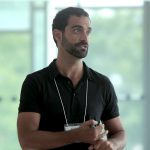 Fabio Tonto is a Senior Project Manager with the Research and Climate Programs section of Toronto and Region Conservation Authority (TRCA). He works on a range of issues including integrated water management, green infrastructure and climate change adaptation. Prior to joining TRCA, he worked as the engineering manager for a stormwater treatment technology company, and as a Water Program manager with Pollution Probe, a leading Canadian environmental nonprofit organization.
Fabio Tonto is a Senior Project Manager with the Research and Climate Programs section of Toronto and Region Conservation Authority (TRCA). He works on a range of issues including integrated water management, green infrastructure and climate change adaptation. Prior to joining TRCA, he worked as the engineering manager for a stormwater treatment technology company, and as a Water Program manager with Pollution Probe, a leading Canadian environmental nonprofit organization.
Session 1D: Future of the Water System
 Ralph Torrie is President of Torrie Smith Associates, a research and software development firm that he founded in 1979. An expert in the field of energy and environment, he has 35 years of entrepreneurial, management and consulting experience, including hundreds of initiatives in research, business development and public policy. He also spent two years as Assistant Coordinator of the Energy Research Group of the United Nations University and the International Development Research Centre, as well as six years as a corporate executive — first as Vice President at ICF International and then as Managing Director at Navigant, both publicly traded U.S. based firms — and two years as Managing Director of the Trottier Energy Futures Project, an innovative collaborative project exploring long-range sustainable energy strategies for Canada.
Ralph Torrie is President of Torrie Smith Associates, a research and software development firm that he founded in 1979. An expert in the field of energy and environment, he has 35 years of entrepreneurial, management and consulting experience, including hundreds of initiatives in research, business development and public policy. He also spent two years as Assistant Coordinator of the Energy Research Group of the United Nations University and the International Development Research Centre, as well as six years as a corporate executive — first as Vice President at ICF International and then as Managing Director at Navigant, both publicly traded U.S. based firms — and two years as Managing Director of the Trottier Energy Futures Project, an innovative collaborative project exploring long-range sustainable energy strategies for Canada.
Session 3A: Ontario’s Long-Term Energy Policy
 Dr. Ioannis Tsanis is a Professor in the School of Environmental Engineering at Technical University of Crete (TUC), a Professor Emeritus in the Department of Civil Engineering at McMaster University and an Associate Member of Climate Service Center, Germany. He is currently participating in several research projects studying the impact of climate change on water resources, extreme events (floods and droughts), ecosystem tipping points, soil degradation, agriculture, tourism and energy.
Dr. Ioannis Tsanis is a Professor in the School of Environmental Engineering at Technical University of Crete (TUC), a Professor Emeritus in the Department of Civil Engineering at McMaster University and an Associate Member of Climate Service Center, Germany. He is currently participating in several research projects studying the impact of climate change on water resources, extreme events (floods and droughts), ecosystem tipping points, soil degradation, agriculture, tourism and energy.
Session 1D: Future of the Water System
 Marina Whelan is an Environmental Health Manager with Simcoe Muskoka District Health Unit, where she manages the Environmental Health Hazard Investigation and Vector-Borne Disease teams. Her current responsibilities include prevention and protection of the public related to health hazards investigations and vector-borne diseases such as West Nile Virus and Lyme disease. She is the manager responsible for the development of the health unit’s climate change action plan and the health unit’s environmentally sustainable business practices. She also provides leadership related to building healthy communities initiatives. Marina is on the steering committee of the Ecohealth Ontario collaborative, as well as local sustainability and climate change adaptation advisory committees. She is the past chair of the Ontario Public Health Association’s Environmental Health Workgroup and a member of the Clean Air Council.
Marina Whelan is an Environmental Health Manager with Simcoe Muskoka District Health Unit, where she manages the Environmental Health Hazard Investigation and Vector-Borne Disease teams. Her current responsibilities include prevention and protection of the public related to health hazards investigations and vector-borne diseases such as West Nile Virus and Lyme disease. She is the manager responsible for the development of the health unit’s climate change action plan and the health unit’s environmentally sustainable business practices. She also provides leadership related to building healthy communities initiatives. Marina is on the steering committee of the Ecohealth Ontario collaborative, as well as local sustainability and climate change adaptation advisory committees. She is the past chair of the Ontario Public Health Association’s Environmental Health Workgroup and a member of the Clean Air Council.
Session 2D/3D: Greenspace Protection and Enhancement: A Critical Adaptation Measure to Protect Public Health in the 22nd Century
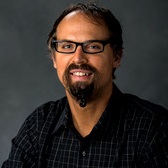 Kyle Powys Whyte holds the Timnick Chair in the Humanities at Michigan State University. He is Associate Professor of Philosophy and Community Sustainability, a faculty member of the Environmental Philosophy & Ethics graduate concentration, and a faculty affiliate of the American Indian & Indigenous Studies and Environmental Science & Policy programs. An enrolled member of the Citizen Potawatomi Nation, he focuses on moral and political issues concerning climate policy and Indigenous peoples and the ethics of cooperative relationships between Indigenous peoples and climate science organizations. His work has recently extended to cover issues related to Indigenous food sovereignty.
Kyle Powys Whyte holds the Timnick Chair in the Humanities at Michigan State University. He is Associate Professor of Philosophy and Community Sustainability, a faculty member of the Environmental Philosophy & Ethics graduate concentration, and a faculty affiliate of the American Indian & Indigenous Studies and Environmental Science & Policy programs. An enrolled member of the Citizen Potawatomi Nation, he focuses on moral and political issues concerning climate policy and Indigenous peoples and the ethics of cooperative relationships between Indigenous peoples and climate science organizations. His work has recently extended to cover issues related to Indigenous food sovereignty.
Keynote Panel
 Bob Willard is a leading expert on quantifying the business value of sustainability strategies. He has given over a thousand presentations, authored six books, and provided extensive resources for sustainability champions. He serves on the boards of Forum for the Future U.S. and the Future-Fit Foundation. He was one of the first five inductees into the International Society of Sustainability Professionals (ISSP) Hall of Fame in 2011 and received a Clean50 award in 2015. He is an award-winning B Corp, an ISSP Certified Sustainability Professional, and has a PhD in sustainability from the University of Toronto.
Bob Willard is a leading expert on quantifying the business value of sustainability strategies. He has given over a thousand presentations, authored six books, and provided extensive resources for sustainability champions. He serves on the boards of Forum for the Future U.S. and the Future-Fit Foundation. He was one of the first five inductees into the International Society of Sustainability Professionals (ISSP) Hall of Fame in 2011 and received a Clean50 award in 2015. He is an award-winning B Corp, an ISSP Certified Sustainability Professional, and has a PhD in sustainability from the University of Toronto.
Session 3C: Going Beyond Compliance by Accelerating Transformational Change
 Mark Winfield is a Professor of Environmental Studies at York University. He is also Co-Chair of the Faculty’s Sustainable Energy Initiative, and Coordinator of the Joint Master of Environmental Studies/Juris Doctor program offered in conjunction with Osgoode Hall Law School. Prior to joining York University Professor Winfield was Program Director with the Pembina Institute, and before that Director of Research with the Canadian Institute for Environmental Law and Policy. He has published articles, book chapters and reports on a wide range of environmental and energy law and policy topics. His new book, Blue-Green Province: The Environment and Political Economy of Ontario was published by UBC Press in 2012.
Mark Winfield is a Professor of Environmental Studies at York University. He is also Co-Chair of the Faculty’s Sustainable Energy Initiative, and Coordinator of the Joint Master of Environmental Studies/Juris Doctor program offered in conjunction with Osgoode Hall Law School. Prior to joining York University Professor Winfield was Program Director with the Pembina Institute, and before that Director of Research with the Canadian Institute for Environmental Law and Policy. He has published articles, book chapters and reports on a wide range of environmental and energy law and policy topics. His new book, Blue-Green Province: The Environment and Political Economy of Ontario was published by UBC Press in 2012.
Plenary Panel | Session 2A: Future of Energy Systems
 Tara Zupancic is the Director of Habitus Research where she works both locally and internationally to advance equity and the priorities of vulnerable or disadvantaged groups in environmental health and climate change policy. Her recent reports for the David Suzuki Foundation and Toronto Public Health, in collaboration with EcoHealth Ontario, led to the Toronto Board of Health’s recommendation to significantly increase the city’s urban green space, particularly in disadvantaged or historically under-served neighbourhoods. Tara is also the co-founder of the Centre for Environmental Health Equity, based at Queen’s University, where she served as Associate Director until 2013. She holds a Master of Public Health from the University of Toronto’s Faculty of Medicine.
Tara Zupancic is the Director of Habitus Research where she works both locally and internationally to advance equity and the priorities of vulnerable or disadvantaged groups in environmental health and climate change policy. Her recent reports for the David Suzuki Foundation and Toronto Public Health, in collaboration with EcoHealth Ontario, led to the Toronto Board of Health’s recommendation to significantly increase the city’s urban green space, particularly in disadvantaged or historically under-served neighbourhoods. Tara is also the co-founder of the Centre for Environmental Health Equity, based at Queen’s University, where she served as Associate Director until 2013. She holds a Master of Public Health from the University of Toronto’s Faculty of Medicine.
Session 2D/3D: Greenspace Protection and Enhancement: A Critical Adaptation Measure to Protect Public Health in the 22nd Century
OUR SUPPORTERS |
||
| – Event Sponsors – | ||||||
 |
 |
 |
 |
||||
| – Event Supporters – |
 |
 |
 |
||||
| – Media Partners – |
| – Event Hosts – |
 |
 |
|||
